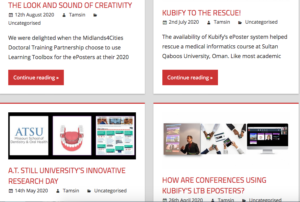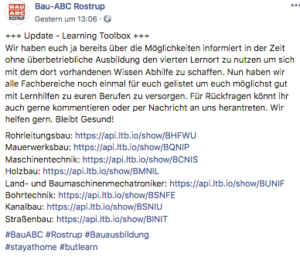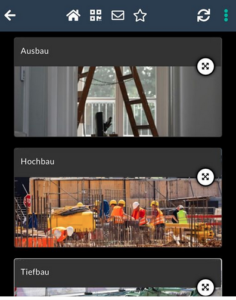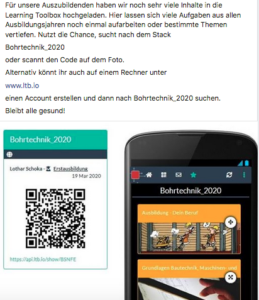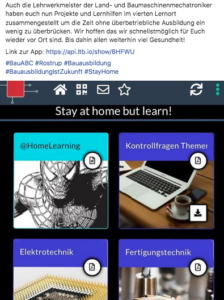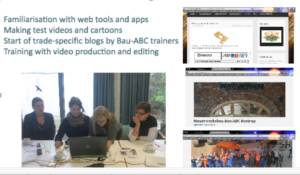Yesterday – after a long delay – I got the sad news that my friend of old, professor Gerhard Zimmer had passed away. As I read from the ‘In Memoriam’ text written by his former colleagues, this has happened already in March this year. At that time I had already left Bremen and was on my way back to Finland. Whatever the cause of delay, it is appropriate to dedicate some words to the memory of my dear friend and to pass my condolences to the ones who loved him.
Here, to be sure, I cannot give a comprehensive overview of Gerhard’s lifework. In this respect I am better off referring the text “Nachruf auf Prof. Dr. Gerhard Zimmer (19. Februar 1943 – 7. März 2020)” (see https://www.bwpat.de/in-erinnerung) and to Gerhard’s profile page at the author archive of the said journal (see https://www.bwpat.de/autor/zimmer). What I can at best do on this blog is to give a brief account on the way we got acquainted, on the time that we have had together in Berlin and on our later encounters. All this is flavoured with memories, how Gerhard supported me as a younger colleague, making contacts with German researchers, getting to know Berlin and sharing experiences of our contexts of work.
Visiting Germany as a an emerging researcher – Gerhard as a true supporter (1989 – 1993)
I learned to know Gerhard personally during my long study visit across West Germany and Berlin in October/November 1989. During five weeks’ time I visited quite a number of research institutes in the field of vocational education and training (VET) starting from ITB (University of Bremen) and ending with several institutes in Berlin, among others the Bundesinstitut für Berufsbildung (BiBB). I knew quite a lot of the researchers and their institutes via literature, but of course it was a rich experience to learn to know them and their colleagues in person. This was also the case with Gerhard, of whom I already knew his involvement in the Projektgruppe Automation und Qualifikation. Now that he was based in the department for continuing vocational training (CVT) in BiBB, he could provide interesting insights into the development of qualifications (based on the field studies) and on the initiatives to enhance the competences of skilled workers (based on the newer pilot projects – Modellversuche).
One year later, during the days of German unification (October 1990) I was again in Germany, on the way to a West-German conference (Hochschultage berufliche Bildung) in Magdeburg (then East Germany) and had a stop-over in Berlin at Gerald’s place. At that time we were able to make plans for his forthcoming visit to Finland, to attend the Finnish Educational Research Association (December 1990) as a guest speaker alongside Ulrich Teichler (Higher Education research) and Gerald Heidegger (also VET research). In that context Gerhard also visited with me another Finnish conference on VET research – and to his great surprise realised that he could follow fluently the the presenter who spoke Swedish. Some time later I was again in Berlin with a delegation of VET teachers for business administration. This visit provided yet another opportunity for exchange of information and sharing knowledge.
Nächste Station: Berlin – Gerhard as a local guide
From 1994 to 1995 I worked as a national seconded expert at Cedefop (European Centre for the Development of Vocational Training). At that time Cedefop was still located in Berlin, whilst Finland was in the transition process of becoming a Member State of the EU. Moreover, BiBB was still located mainly in Bremen (but the clock was ticking for the relocation to Bonn. Anyway, at that time we were almost next door neighbours. So, there were several joint meetings and then we had also some cultural activities. From the latter ones I remember especially our joint visit to Bertolt Brecht’s summer residence outside Berlin.
During this period I learned to know more closely several of Gerhard’s colleagues in BiBB and in its partner organisations. A special highlight of that time was the conference in Köln (Cologne) on Accompanying research as contribution to VET research (Modellversuchsforschung als Berufsbildungsforschung). For me the participation in this conference was of great importance, having read quite a lot of reports of this genre of research and now being able to witness the discussions in person. Also, looking back, the conference proceedings that were published provide important insights into the development of such research as well as visions for future research. Here, among Gerhard, I need to mention his colleague Peter Dehnbostel as major contributors from BiBB and from the host oragnisation Peter Sloane and his team. Another highlight of that period was the inaugural event of the German activities of the EU action programme Leonardo da Vinci that took place in Berlin. (Little did I know, how much I would become involved with the implementation of that programme in the years to come.)
From Berlin to Thessaloniki and back to Finland – occasional encounters but of importance (1995 – 2004)
In the year 1995 Cedefop was relocated to Thessaloniki, Greece and I became a temporary EU official working there from 1995 to 2002. From that point on I was no longer a Finnish liaison officer based in Berlin (with main contacts with the German experts in the city). Instead, I was working for the European research community in the field of VET, facilitating collaboration and knowledge sharing among European projects. So, I was mainly engaged with colleagues who were preparing and managing EU-funded projects or facilitating them in national agencies. At this phase I was very much working together with colleagues at ITB.
During this period BiBB was also relocated to Bonn and some of the colleagues chose to leave BiBB. So, firstly Gerhard and then latterly Peter Dehnbostel took professor positions in VET research at the University of Armed Forces – latterly renamed as Helmut-Schmidt-University – in Hamburg. The challenge for the new professors was to set up new curricula with focus on VET beyond vocational teacher education. The professor chairs were allocated to curricula that provided civilian career options for young army officers after their contract periods in the army. Concerning their research activities, Gerhard engaged his team with Open Distance Learning (ODL) and with eLearning in VET and vocational higher education. Peter was busily involved with studies on new competence frameworks based on validation of non-formal learning and on trade unions’ initiatives to promote continuing professional development. Altogether, they created an intellectual neighbourhood that enriched the VET research culture in Germany.
During my time in Thessaloniki I had less chance to follow these developments in Hamburg. Yet, when I returned to Finland and sought for a new orientation, my contacts with Gerhard and Peter became important anchor points, alongside ITB in Bremen. This became apparent during the conferences in the year 2003 (ABWF-Quem Zukunftsforum in Berlin and ECER in Hamburg). In the next phase the study visit with vocational teacher educators from Jyväskylä to Hamburg and Bremen opened new doors to me. I am very grateful for Gerhard, Peter and their team members as well as for colleagues in ITB for their support during this period.
Letzte Stationen: Bremen & Berlin (2005 -2018)
As a follow-up of my re-established contacts with my German colleagues I started to work as a senior researcher at ITB in 2005. Once again, I was in the middle of European projects and international networking. However, this time I was busily involved also in preparing funding bids and jumping from previous projects to new ones (which were not necessarily direct follow-up activities). Thus, paradoxically, the contacts with my friends in Hamburg started to fade away. And also, both Gerhard and Peter went on retirement and stayed in Berlin and in Bonn.
Then, after several years of silence, I took the initiative to arrange a “Klassentreffen” with the friends of old from the Berlin period of BiBB. I was attending a concert in Berlin and alongside that trip I wanted to meet Berlin-based friends. In this context I had a lengthy session with Gerhard at his place – revisiting our shared experiences and memories of different phases of our careers. Now, we had also new topics to discuss, based on my work at ITB and the projects working with digital tools to support project-based vocational learning. And – looking back – we could also value the work of the Projektgruppe Automation und Qualifikation as an early representative of social shaping of work and technology. At the end of the day we then had an inspiring dinner near the old premises of Cedefop in Berlin with several friends from the early days.
—
I guess these memories give an impression of Gerhard Zimmer as a colleague and friend – a person with whom I had shared interests and shared values. Now he is gone but good memories are there.
Rest in peace, Gerhard!
